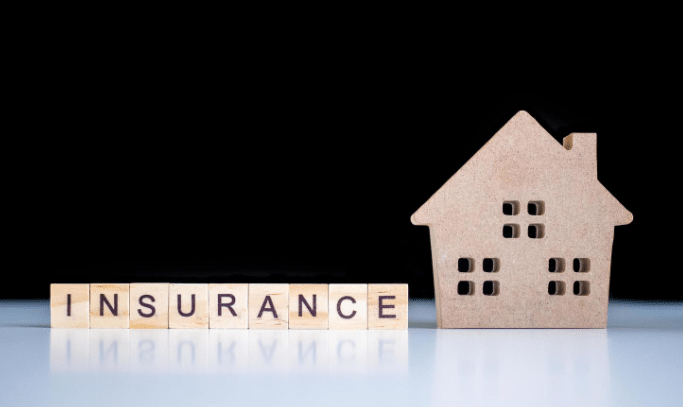As a homeowner, you will do everything you can to protect your properties by getting insurance to cover any damages they may have in the future. In the event that your home or commercial property has gone through an incident such as fire or windstorm, an insurance adjuster is the person you call. A public insurance adjuster is able to evaluate the losses in your property and help you settle insurance claims.
When you insure your home, you are essentially buying peace of mind. Insurance is a crucial safety net that protects your financial investment in your property. However, when a disaster strikes, navigating the claims process can be daunting. Filing a claim involves much more than simply notifying your insurer. It requires detailed documentation and a thorough understanding of your policy’s coverage. This is where the expertise of an insurance adjuster becomes invaluable. For instance, if a severe windstorm tears through your neighborhood, causing significant damage to your roof and exterior structures, you’ll need someone who can accurately assess the extent of the damage and ensure you get the compensation you deserve. Public insurance adjusters specialize in representing policyholders, acting as advocates to help you navigate the complex claims process and negotiate a fair settlement.

Types of Insurance Adjusters
There are two types of insurance adjusters: the Independent Adjuster and the Public Adjuster. Independent insurance adjusters work on behalf of an insurance company, while public adjusters work on behalf of the policyholders. Both types of insurance adjusters must hold a license in order to practice their skills.
The distinction between independent and public adjusters is significant because it determines who they are working for and their primary objectives. Independent adjusters are hired by insurance companies to evaluate claims and minimize payouts. They are essentially the eyes and ears of the insurer, ensuring that claims are handled according to the policy terms and conditions. On the other hand, public adjusters are hired by policyholders to advocate on their behalf. Their goal is to maximize the settlement by meticulously documenting the damage and presenting a strong case to the insurance company. Both types of adjusters must be licensed, which means they have undergone rigorous training and adhere to state regulations. This ensures that they have the necessary knowledge and skills to handle claims professionally. Understanding the roles of these adjusters can help you make an informed decision about who to hire when filing a claim.
Independent Insurance Adjusters
Commonly, independent adjusters are hired when the insurer is burdened with several claims due to a certain catastrophe. To know more about independent insurance adjusters, here is an article to explain their important characterization.
Independent insurance adjusters are self-employed professionals who work on a contract basis. They are often called upon during times of widespread catastrophe, such as hurricanes or wildfires, when insurance companies are overwhelmed with claims. These adjusters step in to provide additional manpower, ensuring that claims are processed in a timely manner. Their primary responsibility is to assess the damage and determine the insurer’s liability. They conduct thorough investigations, which include inspecting the damaged property, interviewing witnesses, and reviewing relevant documents. Independent adjusters must be impartial and objective, providing accurate assessments that reflect the true extent of the damage. Their expertise is crucial in helping insurance companies manage large volumes of claims efficiently. However, it’s important to remember that independent adjusters ultimately represent the insurance company’s interests, not the policyholder’s.
Understanding the Job of Independent Insurance Adjusters
The first thing you need to understand about Independent Insurance Adjusters is that they are self-employed and work for companies on a contract basis. Frequently, independent adjusters are hired for two reasons:
- Overloaded claims
- Statutory reasons
Insurance companies often find themselves understaffed during major disasters, which is why they rely on independent adjusters. These adjusters help manage the surge in claims, providing the necessary resources to handle each case efficiently. They are also brought in for statutory reasons when regulations require an independent evaluation of the claim. Independent adjusters are known for their flexibility and ability to work under pressure. Their job involves traveling to affected areas, conducting on-site inspections, and compiling detailed reports for the insurance company. They must maintain a high level of professionalism and integrity, as their assessments directly impact the insurer’s financial liabilities. The role of an independent adjuster is demanding and requires a comprehensive understanding of insurance policies, construction principles, and valuation methods. Their ability to provide accurate and timely assessments is crucial in ensuring that policyholders receive fair and prompt settlements.
Responsibilities of Independent Adjusters
Licensed adjusters are capable of providing services not only to insurance companies but also to self-insured and government entities. The main job of an Independent Adjuster is to conduct an investigation and manage claims sent to insurers. For example, if a wildfire damages your property, which is a case of catastrophe, adjusting companies will deploy independent adjusters to assess the situation, determine the damages, and devise a recovery plan. Once the case is carefully analyzed, the adjuster makes a report with recommendations and presents it to the insurer for final settlement.
Independent adjusters play a critical role in the insurance claims process. Their responsibilities begin with conducting a thorough investigation of the claim. This involves visiting the damaged property, taking photographs, and interviewing the property owner and witnesses. They must document all aspects of the damage, from structural issues to personal property losses. After gathering all the necessary information, the adjuster evaluates the extent of the damage and prepares a detailed report. This report includes an estimate of the repair or replacement costs and recommendations for settlement. The adjuster then presents the report to the insurance company, which relies on this information to make a final decision on the claim. Independent adjusters must ensure that their assessments are accurate and unbiased, as any discrepancies can lead to disputes and delays in the settlement process. Their work requires a high level of expertise, attention to detail, and ethical conduct.
Qualifications to Become an Independent Insurance Adjuster
Most Independent Insurance Adjusters are well-experienced because they work as freelancers. To work independently as an insurance adjuster, one must gain substantial knowledge and experience about the industry. Working at an insurance company is an excellent training ground to become familiar with the policies and settlements relating to claims and insurance. Besides having extensive experience, obtaining an Adjuster’s license is crucial as it is one of the state’s requirements. Furthermore, to become a competent and reliable Independent Insurance Adjuster, one must undergo a series of training and studies to meet all educational requirements. Joining the National Association of Independent Insurance Adjusters offers opportunities to connect with other professionals and complete the necessary courses.
Becoming an independent insurance adjuster requires a combination of education, experience, and certification. Aspiring adjusters typically start their careers by working for an insurance company, where they gain practical experience in handling claims and understanding policy language. This experience is invaluable, as it provides a solid foundation for the complex work of an independent adjuster. To practice independently, adjusters must obtain a state-issued license, which involves passing a licensing exam that tests their knowledge of insurance laws and practices. Additionally, continuous education is required to keep up with industry changes and maintain licensure. Many independent adjusters choose to join professional organizations such as the National Association of Independent Insurance Adjusters (NAIIA), which provides access to resources, training programs, and networking opportunities. This affiliation not only enhances their credentials but also keeps them informed about the latest trends and best practices in the industry.
Independent Adjuster vs. Public Adjuster
As mentioned, there are two types of insurance adjusters, and naturally, there are some misconceptions between the two because they have almost the same responsibilities. Here is a short explanation to differentiate an Independent Adjuster from a Public Adjuster:
- Independent Adjuster: Works on behalf of the insurance company, evaluating and managing claims, especially during high-volume scenarios like catastrophes. They legally represent their employer, which is the insurance company, and not the clients.
- Public Adjuster: Represents the policyholder, working to ensure that the claimant receives the maximum settlement from the insurance company. They solely represent the financial interests of the insured person.
The primary difference between independent and public adjusters lies in whom they represent and their objectives. Independent adjusters are contracted by insurance companies to handle claims on their behalf. Their job is to evaluate the damage, determine the insurer’s liability, and recommend a settlement amount. Because they work for the insurance company, their focus is on minimizing the payout within the policy limits and ensuring that claims are resolved efficiently. Conversely, public adjusters are hired by policyholders to represent their interests during the claims process. They advocate on behalf of the insured, ensuring that all damages are documented and that the claimant receives a fair and comprehensive settlement. Public adjusters are particularly valuable when dealing with complex claims or when the policyholder feels that the insurance company’s offer is insufficient. By understanding the distinct roles and responsibilities of each type of adjuster, policyholders can make informed decisions about who to hire to handle their claims.
Hiring a Licensed Adjuster
Now, the question is where can you hire a licensed adjuster? To answer your query, keep in mind that we have reliable adjusters at Florida Public Adjusting, a company based in Miami, Florida. Public Adjusters from this company are all licensed and highly trained for different types of services. Over the years, the public adjusters from Florida Public Adjusting have teamed up with several clients who received more money than they had expected.
This company accepts all kinds of claim services such as water damage, flood damage, smoke damage, and many more. For more details, you may reach us at 786-751-6071 or visit their website here.
When it comes to hiring a licensed adjuster, it’s essential to choose a company with a proven track record of success and a team of highly skilled professionals. Florida Public Adjusting, based in Miami, Florida, is renowned for its exceptional service and expertise in handling a wide range of insurance claims. Their public adjusters are fully licensed and undergo rigorous training to ensure they are well-equipped to handle any situation. Client satisfaction is a top priority at Florida Public Adjusting, and their adjusters work diligently to secure the maximum settlement for every claim. The company’s extensive experience in dealing with various types of damages, including water, flood, and smoke damage, has earned them a reputation for excellence. If you need assistance with an insurance claim, you can trust Florida Public Adjusting to provide the expert guidance and support you need. For more information or to schedule a consultation, you can contact us at 786-751-6071 or visit their website.

Conclusion
Understanding the difference between public and independent insurance adjusters is crucial for homeowners and property owners. Both play significant roles in managing and settling insurance claims, ensuring that you receive fair compensation for any damages incurred. Whether you are dealing with a routine claim or a catastrophic event, knowing who to call and what to expect can make the process smoother and more efficient.
Making sense of the insurance claims process can be challenging, but knowing the roles of independent and public adjusters can help you navigate it more effectively. Independent adjusters work for the insurance company, focusing on assessing damage and determining the insurer’s liability. In contrast, public adjusters advocate for the policyholder, striving to maximize the settlement. By understanding these roles, you can make informed decisions about who to hire based on your needs and the specifics of your claim. Whether you’re facing a minor issue or a significant disaster, having the right adjuster on your side can make a substantial difference in the outcome. Both types of adjusters provide valuable services, but it’s up to you to decide which best aligns with your goals and circumstances. With the right support, you can ensure that your claim is handled efficiently and that you receive the compensation you deserve.





